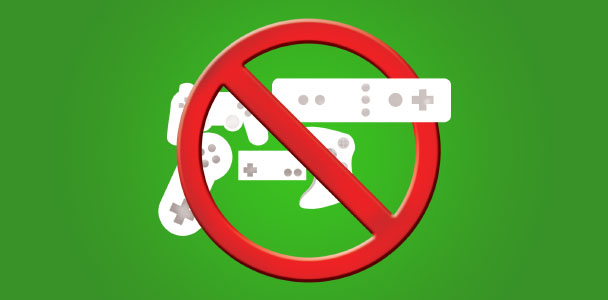Last night, I went on a rampage. I killed several people with my bare hands, and was thoroughly entertained.
No, not in real life, but on Xbox live.
Gaming does not make people violent. When will this absurd notion cease to exist?
Groups who are against violent gaming pose the argument that kids who shoot up schools aren’t mentally unstable or simply aggressive by nature. Rather, it’s because they knew better, but played too much “Battlefield” or “Halo.”
Some organizations, such as the Parents Television Council, are so caught up in their crusade against violent games, they don’t notice the system in place to keep children from buying them to begin with. In the eyes of organizations like these, parents who don’t care what their kids do, or are unaware of the Entertainment Software Rating Board (ESRB) rating system, are not the problem.
But do these games truly desensitize people to violence in the real world, making them incapable to aid those who are in need, or in turn, make them more aggressive?
Some say the games can actually be beneficial.
“Play actually may strengthen a range of cognitive skills such as spatial navigation, reasoning, memory and perception. This is particularly true for shooter video games that are often violent,” said a representative from the American Psychological Association.
PTC, an educational organization that advocates for responsible entertainment, doesn’t mention that consumers must show ID to prove you are 17 in order to buy “M” (mature) rated games.
In fact, they argue the other way. On PTC’s website, they state that children can buy “AO” (adults only) rated games without any parental consent or proof of age.
Most retailers in the United States, like Wal-Mart or Target, don’t even stock “AO” rated games. Typically, consumers in the U.S. must buy these games online, which of course requires a credit card.
If they aren’t of age, children can only buy mature games with a parent present and with their consent, and no child under the age of 18 can purchase an “AO” game, even with parental permission.
Alan Miller, a professor of the Race and Gender in the Media class at American River College, does not approve of the genre.
“As a military veteran with grandsons drawn to violent video games, I believe them to be dangerous because they contribute to the myth that killing is basically fun and without consequences,” he said.
Miller also seems to believe that the “problem” has manifested so much by now, there’s no way to get rid of it.
“This sulfurous mindset has been promoted for decades by movies and television shows that glorify mayhem. Problem is, these games are so profitable and have infected the culture so much, there’s little likelihood that laws or rating systems are going to lessen the lure of these insidious games for impressionable youths,” he said.
Then, isn’t it still ultimately up to parents to decide what their children are allowed to play?
If the games are so violent, shouldn’t it be taught to children that they’re just games, and if they were to attempt these actions in real life, there would be serious repercussions?
Maybe instead of groups working against violent gaming, they should advocate for teaching gamers to know the difference between video games and real life.















Brad C. • Dec 10, 2014 at 12:04 am
No studies show a causal link to violence, however, there is correlational evidence that exposure to violent video games has other, subtle side effects. For example, if players don’t critically examine the underlying ideology of games, they may internalize it as part of a greater culture of misogyny, and *phobia. You can see this bear out right now in the news about #gamergate, and the continued harassment of women in gaming. The video games aren’t directly causing the problem, but they are reinforcing negative messages in society–a group conformity problem you can see in the Stanford Prison experiment, and an observational learning problem demonstrated in Bandera’s Bobo Doll experiments. Another example is when people become desensitized and start to demonstrate inappropriate reactions to situations they would otherwise be aversive to. This can be a problem, because aversive disgust can lead to the moral dilemmas that cause people to question underlying behavior and motives.